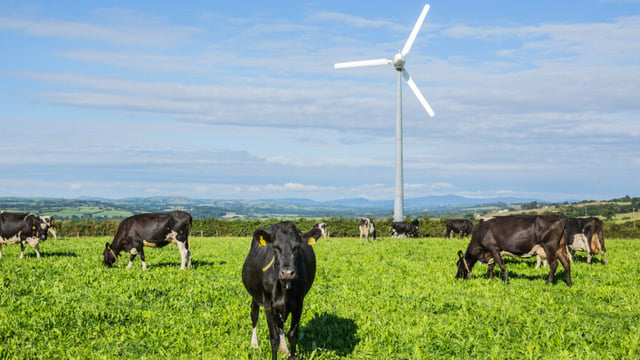Farmer emotional distress 'often goes unspoken and untreated' - farm org
The emotional distress of farmers "often goes unspoken and untreated", the Irish Farmers' Association (IFA) said, as it called for action on mental health.
According to IFA deputy president Alice Doyle, a farmer struggling with stress, anxiety, or depression is "more at risk of making unsafe decisions, more likely to withdraw socially, and less likely to engage with services that could help improve their farm and their life".
She told the Oireachtas Joint Committee on Agriculture and Food this afternoon (Wednesday, July 9) that initiatives to raise awareness, train agricultural advisers in mental health literacy, and provide better access to rural services are "extremely important".
"However, we now need to move beyond recognition," the IFA said in its submission to the committee.
"We need action that is co-ordinated, properly funded, and grounded in what farmers themselves are telling us.
"It means ensuring that services are not only available, but accessible in terms of time, location, and cultural fit."
Alice Doyle has said there is a need to put trained counsellors and peer support into the spaces where farmers already go - such as marts, co-ops, and discussion groups.
Farmers must also be involved "directly in the design and delivery of those supports, so that nothing feels imposed or out of touch with their lived experience".
"We cannot expect farmers to thrive when they are isolated, unheard, and overwhelmed," Doyle said.
Many farmers are "slow to seek help", Doyle said, and "cultural norms around stoicism, combined with limited access to services in rural areas, mean that emotional distress often goes unspoken and untreated".
The IFA ran a farmer health check programme last year in partnership with Croí, the heart and stroke charity, and funded by the Department of Agriculture, Food and the Marine. This programme will continue this year.
"By setting up health checks and wellbeing conversations at marts across the country, we were able to meet farmers in familiar, trusted environments - places they go already, where they feel comfortable," according to the IFA.
"The result was not only hundreds of physical health screenings, but also open conversations about stress, diet, lifestyle, and emotional wellbeing.
"The demand for the service was high.
"From this initiative, we saw troubling patterns emerge. The average wellbeing score among farmers was just 53.8%, indicating widespread low mood. 58% said they rarely or never felt relaxed, and 46% rarely felt optimistic about the future."
Attending the committee meeting also was Teagasc, and outlining its research on farmer mental health and wellbeing, it told the committee in its submission that its approach "recognises that whilst some farmers face mental health challenges, the evidence suggests a more nuanced picture than universal crisis narratives suggest".
International research suggests farming communities "demonstrate considerable resilience", and research also indicates that "crisis-focused messaging can inadvertently increase stigma and discourage help-seeking", according to Teagasc.
David Meredith, senior research officer with Teagasc, said that research shows that while it is true that an emerged number of farmers "experience stress, this does not mean that there is a mental health crisis within agriculture", and research conducted has highlighted that the wellbeing of farmers is "generally good".
"What Teagasc advocate for, are targeted policies and strategic responses based on enhancing the resilience of farmers, through the effective education, training and advisory services that enable farmers to prevent stress to begin with and the adoption of knowledge, practices and tecnologies that are relevant to them and their business," Meredith said.
"We do this through rigorous research that looks at the best means of providing these services and this education."
Ongoing research includes identifying practices that protect the wellbeing of dairy farmers over the course of the working year, and, through the EU-funded SafeHabitus project which Teagasc leads, "developing an understanding of the system of formal and informal supports required by farmers and farm families in the aftermath of injuries", Teagasc said.
"We will also start a new Walsh Scholarship-funded project in the new year that focuses on understanding the impact and implications of 'private governance' of farming practices relating to environment, biodiversity and animal welfare," Teagasc said.
"Teagasc research demonstrates the benefits of longitudinal, comparative studies that examine farmer mental health in context, which help identify the positive aspects of farming, and compare farming populations with similar rural and occupational groups.
"This will ensure policymakers and policy stakeholders have evidence on which to develop strategies and measures that enhance the quality of life of farmers, farm families and rural communities."





